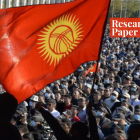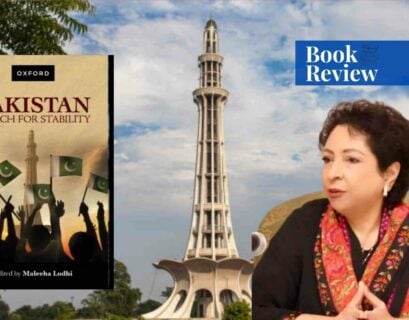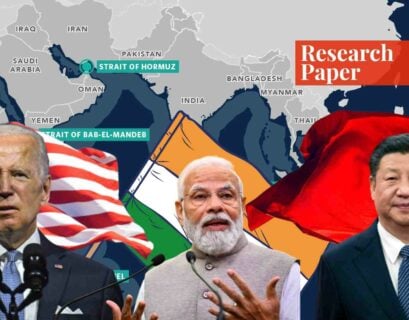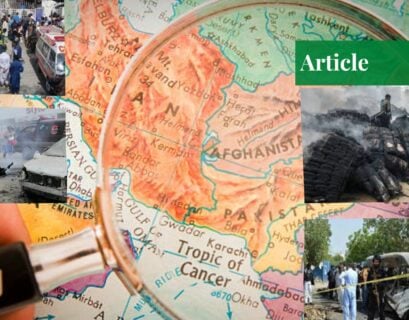Mr Hamza Sharif graduated with a degree in Mechanical Engineering from HITEC University. His areas of interest are geopolitics, current affairs, and history.
The American historian, Howard Zinn, once said, “How can you have a war on terrorism, when war itself is terrorism?” Afghanistan has always remained a hot spot for conquerors due to its proximity to warm waters, the rich oil nations, and the spice, crops, and cloth-rich sub-continent. Like the past conquerors who planned to dominate the state, the withdrawal of the US from Afghanistan comes as no surprise. It was only a matter of time.
If we glance at history, every invader and army came through this tract of land. They were allowed to pass through in return for gains, tolls, and bounties for the local sardars and tribes. This rugged area with meager grain resources has been a tribal-torn—sometimes united for good dividend—isolated buffer zone between the south and the north. It attributed to many wars, either as a defender or an attacker, until it finally achieved demarcated boundaries when Britain and Russia decided to leave Afghanistan in the 19th century.
The Creation of Proxies
In December 1979, in the midst of the Cold War, the Soviet Union invaded Afghanistan, marking the start of a long ten-year war. It forced Afghanistan to become America’s and the Soviet Union’s battleground. The invasion of Afghanistan meant that the Soviets would be able to grab onto greater influence in the oil-rich neighboring countries and in most of South Asia.
This invasion was in no way welcomed by the Americans and caused them to start a campaign to drive out the Soviets. With the help of Pakistan and Saudi Arabia a proxy war had been initiated to prevent a head-on collision between the Americans and the Soviets. A direct confrontation between the two superpowers of that time would be far too dangerous; it would probably cause more collateral damage, human lives, and require funding in billions of dollars.
All of this was well thought of but what the two blocs failed to realize was that the seeds being sown were only going to create a far bigger monster to deal with in the future. This creation of proxies contributed to the birth of radical extremists who would forever haunt the world.
Now it is not necessary that all of these proxies had become ignoble but rather, only the ones brainwashed by people for their own personal interests had been corrupted. Among the immoral conversions were the ones responsible for terrorism throughout Pakistan and for one of history’s turning point events, the September 11 attacks.
The US Military Intervention in Afghanistan
After the Soviets had left Afghanistan, failed to reach warm waters, and gained no influence in the region, the Afghan soil was abandoned without any proper direction to the people. It was under the Taliban rule that some sort of law and order had been brought but the primitive system they had implemented was not acceptable to the West. Once 9/11 occurred, it was game over for the Afghan Taliban. This resulted in the War on Terror and the American invasion of Afghanistan.
America has had a habit of intervening militarily in different countries. It had not learned its lesson in Vietnam and moved on to another expedition in a far more difficult area. The Americans had made the same mistake as their counterpart, the Soviet Union. This marked the start of a never-ending war between the United States and the Afghan Taliban.
The Afghan Taliban did not believe that any foreign power is allowed to rule over their land. With the local support, the Taliban remained resilient and were well acquainted with the terrain. Hence, they were the only ones capable of fighting in Afghanistan, while the American’s had gotten stuck in a mousetrap.
This war has cost the American taxpayers a trillion dollars, approximately 975 billion dollars, and yet the results have never favored the Americans. Many of the American attacks had been foiled, as the guerrilla fighters would run off into the protection of the mountains and merge with the locals after attacking American army caravans.
Today, after two decades of war Afghanistan is still controlled by the Afghan Taliban, and America with its allies is obliged to make a peace deal with them to avoid any further financial and human loss. All this proves is that military intervention is not the answer to stopping terrorism. Operation Enduring Freedom was initiated to fight against terrorism, but rather it had created more problems in the region, more proxies and extremist groups emerged as a regional and world menace.
When a foreign force is used on the people of the land, their resistance transforms into an ideology against the aggressor, resulting in freedom-fighting groups. America has caused the emergence of freedom fighters in areas it has militarily intervened in.
Another similar and glaring example is that of Kashmir, where the Indian army, as a foreign occupying force, has caused the same unrest and freedom movement. However, within the freedom movement are crook-minded people who exploit these aroused emotions of the people. Through apocryphal words, they are able to steer people into working for their own vested interests. The Pakistan Taliban, hardliners/extremists, and non-state actors present a perfect example of these people.
The Possible Impact of China’s Soft Power Approach
Now let’s look at another approach to gaining influence in the region as well as countering terrorism. Economic benefits are always welcomed, and this is how China is smartly playing out its influence over the world. It has projects running in Africa, and nations in the continent are prospering from the development. Then we have the Belt and Road Initiative (BRI), a grand plan worth 1 to 8 trillion dollars, consisting of 6 corridors and 790 projects that could connect the world together in solidarity as well as development.
China with its BRI initiative could be able to stir up a solution to stopping global terrorism or at least circumventing it in the future. This is what is needed in Afghanistan, and the region, to kick start economic development. Economic development will ensure positive economic activities which will contribute to imparting good education to children of areas inflicted by terrorism. Consequently, it will reduce the radicalism of children.
China will be able to have influence over most of Asia and Europe through peaceful, non-military interventions and this will result in low chances of internal conflicts, and progressive development in the spirit of mutual partnership with economic dependency on each other. It is vital that Afghanistan is linked with the economies of the world. It should be dragged into legitimate businesses so its economy can also prosper, ultimately benefiting the people of Afghanistan for their independent survival without banking on foreign obligations.
As mentioned in the quote at the start, “war itself is terrorism”. China is not inflicting war, rather it is giving developing opportunities to poor countries which are more vulnerable to falling into civil disobediences and creating terrorist groups.
The Indian Involvement
The Indian experience, in Afghanistan, as a regional peace sponsor has not been very productive. By virtue of their presence in Afghanistan, they exploited all situations to play their own game. India created, financed, and trained fighting groups to use them against Pakistan. Pakistan suffered due to state-sponsored terrorism because India had its footprint in Afghanistan. The Indian involvement has caused more unrest and disturbance than peace and stability in Afghanistan.
Besides if we look at the regional prism we see India has hostile geographic and political relations with its neighboring countries—Nepal, Sri Lanka, Bangladesh, China, and Pakistan. India’s demeanor resembles the Chanakya ideology. For example, the phrase, “Your neighbor is your natural enemy and the neighbor’s neighbor is your friend,” has displayed itself in Afghanistan. Only after India’s elimination has it become possible for the nations involved in the Afghan peace deal to come to a conclusion with favorable terms.
If we look at America/NATO war in Afghanistan during the past two decades, it was only Pakistan that was fully involved and not India. This validates the importance of the near neighboring countries. Terrorism is like a virus and it is contagious, and the most vulnerable are the countries that share borders. Therefore, it is in the interest of these neighboring countries to help the affected state be free of terrorism and bring peace and prosperity to it.
US Withdrawal is Crucial for Afghanistan
Afghanistan is once again at crossroads facing an undecided future. The United States, intent to end its longest unsuccessful war and hoping to withdraw its troops from Afghanistan according to the US-Taliban agreement, is now held back by the new Biden administration. For the last two decades, Afghanistan’s neighboring countries—Pakistan, Iran, Tajikistan, Turkmenistan, Uzbekistan, and China—and far neighbors—Russia, India, and Turkey—have viewed the American military presence in Afghanistan as a mixed blessing.
The United States has been engaged in a war for 20 years, against people who have a history of keeping the invaders occupied till their terms are agreed to. In this war, history is repeating itself by keeping the Americans are entangled. The US is suffering, economically, geographically, and on moral high grounds as aggressors; it is finally time for its withdrawal from the exoteric region of Afghanistan, instead of suffering longer.
Keeping in view of the negotiations, the local actors have gotten involved to have their influence in Afghanistan for geostrategic purposes and economic benefits. Stability in Afghanistan and the US withdrawal will therefore, profit these local actors. Furthermore, a gateway to Afghanistan will provide them access to Central Asia and regional security and economic domination. In retrospect, the Taliban’s gains have been glaringly enhanced because it was easier for them to get approbation from their own people against the existing government installed by the foreign occupiers.
The successive governments in Afghanistan since 9/11 in tandem have lost their legitimacy and popularity. Above all, these governments have been dependent on the USA and EU for their economic and security survival. This dependency never provided a sense of ownership to the people
Resultantly, Afghanistan as a country never tried to stand on its own feet or strived to exist with its people based on mutual trust and confidence. The US withdrawal from Afghanistan in the existing geopolitical situation is mandatory for the state to become self-reliant. The withdrawal decision is not only the result of the losses America suffered in Afghanistan but also due to the immense amount of pressure from within and outside. The more it delays the open it is to economic and security threats.
Although the Biden administration has announced that it will uphold the agreement of the previous government, it will still have its own way to settle the issue with the Taliban. It will move forward in view of its own regional and world perspective. President Biden has been involved before, for five years, with the Taliban but with different terms.
The Biden administration has said that it wants to move forward to bring peace in the region by changing the geostrategic pendulums in its favor. President Biden’s plan for the withdrawal of the US troops from Afghanistan includes the creation of a transitional peace government between the Taliban and the Afghan government. This can be seen as a step towards the manifestation of the Doha Agreement.
However, the implementation of his plan might be easier said than done. Getting the two opposing Afghan leaderships to agree to cooperate and then run the country together could complicate matters. Furthermore, dividing the government between the two creates the possibility of a civil war breaking out between the two after the withdrawal of American troops from Afghanistan.
Conclusion
There is a need to foster a mutual agreement guaranteeing commitment to peace and stability in the region. A peace cooperation platform should be formed, involving Afghanistan’s near neighbors, for creating inter-dependence survivability with linked interest under the aegis of the USA, and in cooperation with China and Russia.
With China being the region’s most developed and potent economy, it would be beneficial if it takes up the majority of the responsibility in bringing peace and stability into the country, and to the region as a whole. China has a better understanding of its neighboring countries, hence, it is well suited to the task.
Now that America is withdrawing its troops from Afghanistan, it is essential that the near neighboring countries take up the responsibility to bring regularity into the Afghan political system, and allow it to persevere as a sovereign state. Despite the strain in the Pakistan and US relations over Afghanistan, the US needs to support Pakistan in helping stabilize and legitimize the Taliban government in Afghanistan. Since the implications of the US withdrawal from Afghanistan will now come into play, it is imperative that no foreign interventions be allowed; it is even more important that Afghanistan is not converted into another battleground for two different countries again. Afghanistan must be floated in the right direction by its neighboring countries, and allowed to face the waves on its own. Foreign interventions will only make the boat heavier and harder to steer, ultimately resulting in another sinkage.
If you want to submit your articles and/or research papers, please check the Submissions page.
The views and opinions expressed in this article/paper are the author’s own and do not necessarily reflect the editorial position of Paradigm Shift.


















